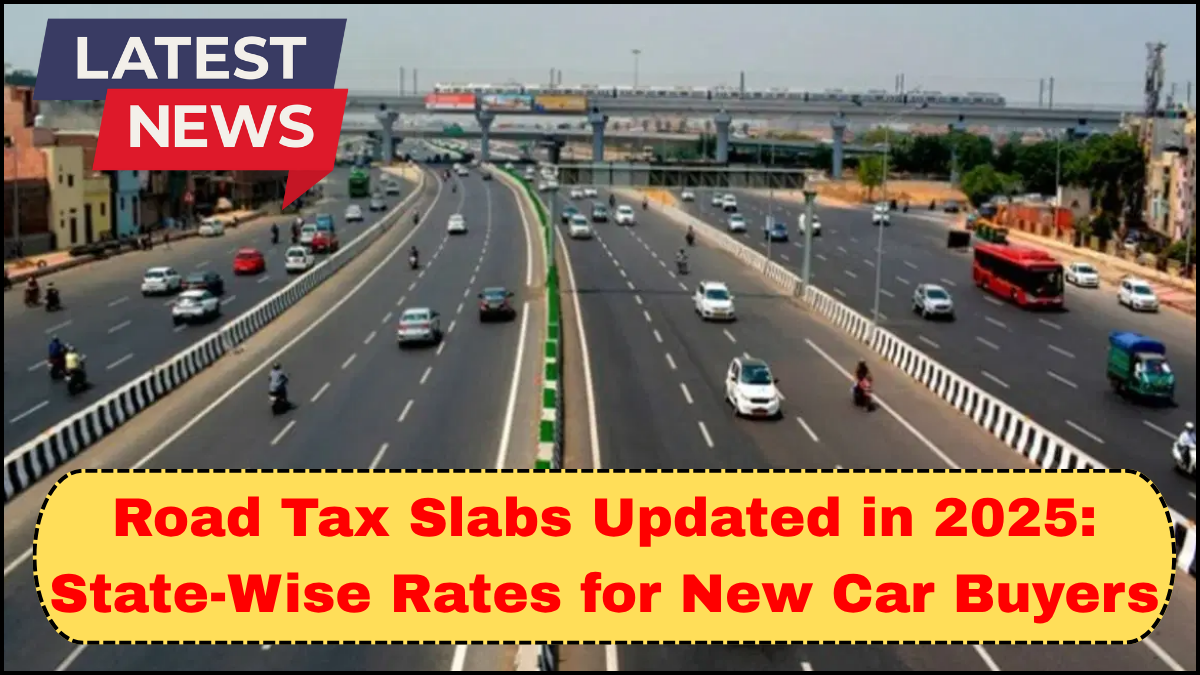As the Indian automobile market continues to grow, state governments have revised their road tax policies to align with changing consumer trends, environmental goals, and infrastructure demands. The Road Tax Update 2025 brings new slab rates that directly impact how much new car buyers pay at the time of vehicle registration. This guide breaks down the updated road tax slabs across different Indian states, while offering insights into how these changes affect purchasing decisions.

What Is Road Tax and Why It Matters
Road tax is a mandatory charge imposed by state governments for using public roads. It is usually a one-time payment collected during vehicle registration, though some states allow annual or lifetime payments. The revenue collected funds road maintenance, construction, and transportation projects.
Since road tax is regulated at the state level, rates differ widely across India. The State-wise car tax India structure considers factors such as vehicle cost, engine capacity, fuel type, and in some cases, the vehicle’s weight and emission standard.
Key Highlights of Road Tax Update 2025
The Road Tax Update 2025 introduces changes that reflect India’s focus on sustainable mobility and fiscal efficiency:
- Increased tax for high-end and luxury vehicles
- Lower tax brackets for electric vehicles (EVs) and hybrids
- Revised slabs based on ex-showroom price tiers
- Incentives for scrapping old, polluting vehicles
These updates aim to curb pollution, promote EV adoption, and generate funds for infrastructure upgrades.
State-Wise Road Tax Rates in 2025
Maharashtra
- Petrol/Diesel Cars:
- Below ₹7 lakh: 11%
- ₹7-10 lakh: 13%
- Above ₹10 lakh: 15%
- EVs: 1%
Karnataka
- Below ₹5 lakh: 13%
- ₹5-10 lakh: 15%
- Above ₹10 lakh: 18%
- EVs: 0% (fully exempt)
Tamil Nadu
- All vehicle slabs: Fixed at 10% of ex-showroom price
- EVs: 0% for 5 years
Delhi
- Up to ₹6 lakh: 6%
- ₹6-10 lakh: 8%
- Above ₹10 lakh: 10%
- EVs: 0%
Uttar Pradesh
- Petrol/Diesel Vehicles:
- Below ₹5 lakh: 8%
- ₹5-10 lakh: 10%
- Above ₹10 lakh: 12%
- EVs: 2%
Gujarat
- All fuel vehicles: 6% – 12% based on engine capacity
- EVs: 0%
These variations illustrate how the state-wise car tax India system can significantly influence the total cost of a vehicle.
Impact on New Car Buyers
The updated tax slabs can either ease or increase the financial burden for new car buyers, depending on the state and vehicle type. Buyers opting for EVs stand to gain the most, with several states offering full tax exemptions. In contrast, luxury car buyers face steeper charges, especially in high-income states like Karnataka and Maharashtra.
For instance, purchasing a mid-segment sedan worth ₹9 lakh in Delhi would attract 8% road tax, whereas the same vehicle in Karnataka would incur a 15% tax. The difference in tax alone can exceed ₹60,000.
EV Tax Incentives: A Game Changer
A prominent feature of the Road Tax Update 2025 is the aggressive push for electric mobility. States like Delhi, Karnataka, and Gujarat offer either zero or minimal road tax for EVs, making them more financially attractive than internal combustion vehicles. Combined with FAME-II subsidies and reduced running costs, these incentives could accelerate India’s transition to cleaner transport.
Registration and Payment Process
Road tax is usually paid at the Regional Transport Office (RTO) during registration. Many states now offer online portals for seamless tax calculation and payment. Ensure you carry valid ID, proof of purchase, insurance, and emission certificates when registering a new vehicle.
Tips for Buyers
- Always check the state-wise car tax India structure before purchasing a vehicle.
- Factor in road tax while calculating on-road price.
- Consider EVs if tax savings and long-term cost efficiency are priorities.
- Check if your state offers scrappage benefits or green tax rebates.
FAQs
Q1. Why does road tax vary between states?
Each state sets its own rates based on local infrastructure needs, policy goals, and vehicle density.
Q2. Are road tax rates different for commercial and private vehicles?
Yes, commercial vehicles typically have different slab rates or permit charges.
Q3. Can road tax be transferred if I move to another state?
In most cases, you must re-register and pay the applicable tax in the new state. You can claim a refund from the previous state.
Q4. How is road tax calculated?
Most states calculate tax as a percentage of the vehicle’s ex-showroom price. Some consider weight or engine capacity.
Q5. Are there penalties for delayed road tax payment?
Yes. Delays can result in fines or legal issues, especially during re-registration or resale.
click here to learn more